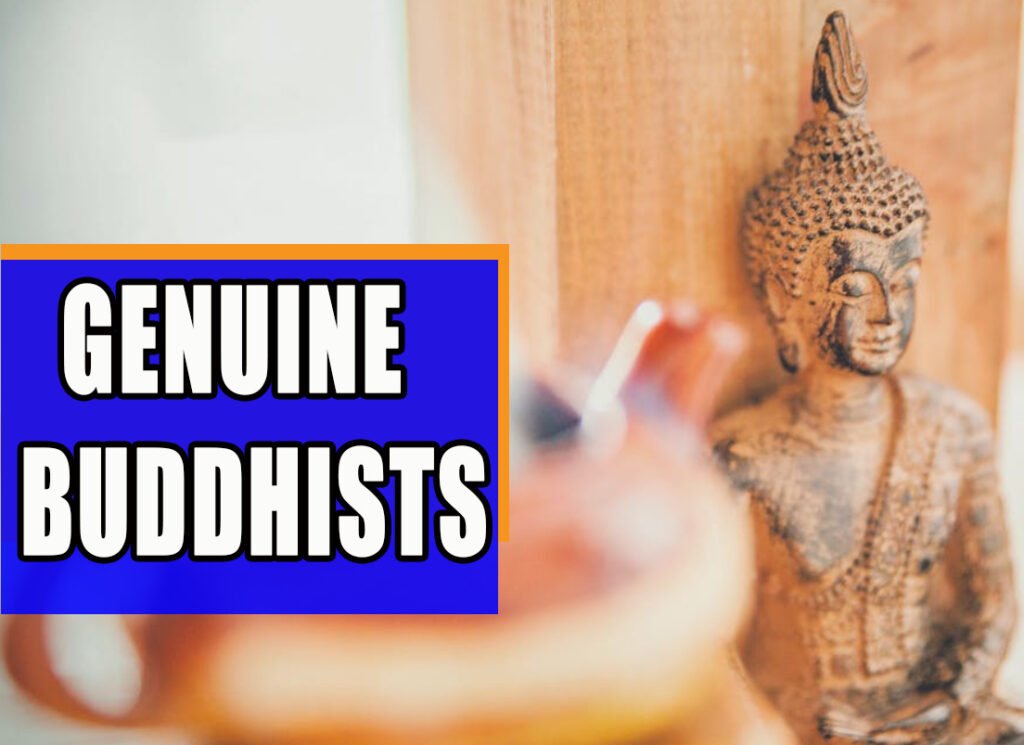
In Anguttaranikaya Pañcakanipata Chatthamabhaga right in Catutthapannāsaka Upasakavagga of the discourse scripture (Khmer scripture volume 45), the Buddha stated that:
“Pañcahi bhikkhave dhammehi sammannãgato upasako upasakaratanañca hoti upasakapadumañca upusakapundarikañca. O Bhikkhus, a layman who is endowed with five good qualities is called a ‘ratanaupasaka’, a ‘padumaupusaka’ and a ‘pundarikaupasaka. Katamehi pañcahi? What are the five good qualities? Saddho hoti silava hoti akotuhalamangaliko hoti kammam pacceti no mangalam na ito bahiddha dakkhineyyam gavesati idha ca pubbakaram karoti. A layman who is confident is one, a layman who is moral is one, a layman who does not adhere to superstitions is one, believes only in karma (action) not in superstition is one, does not seek for one who is worthy of gifts outside Buddhism; does meritorious deeds only in Buddhism is one. Imehi kho bhikkhave pañcahi dhammehi sammannãgato upasako upãsakarata- nañca hoti upasakapadumanca upasakapunda- rikañcãti. O Bhikkhus, a layman is endowed with five good qualities is called a ‘ratanaupasaka’, a ‘padumaupasaka’ and a ‘pundarikaupasaka”. According to the above-mentioned teachings, the Buddha called a layman who was endowed with five good qualities a ‘ratanaupasaka” (a layman like priceless jewels – gold and diamond and the like), a ‘paduma- upāsaka’ (a layman like paduma -red lotus flower) and a ‘pundarikaupasaka (a layman like pundarika – white lotus flower).
The word “Upasaka” here refers to lay followers of Buddhism, both layman and laywoman, like the explanation in Ekasesasamasa (a compound which either part is left) of Pali language which verifies that: Upasako ca upasikã ca = Upasaka’ meaning both layman and laywoman as laymen.
In this booklet, may I use the word “Genuine Buddhists” instead of the three above words, ratanaupāsaka’, ‘padumaupusaka’ and ‘pundarika- upasaka”, to make Buddhists understand clearly that to be Genuine Buddhists they must be the three above-mentioned upasakas and to be the three above-mentioned upasakas they must be upãsaka who is endowed with the five good qualities, i.e. as a layman who is confident and the rest
1. A LAYMAN WHO IS CONFIDENT
The word “Saddha” (confidence or faith) is a Pali word. Its explanation is ‘Saddhahatiti = Saddha’ meaning what always believes is called ‘Saddha’. Saddha has its criteria called Lakkhanãdicadukka’ (four defining devices) as follows:
1.Saddahanalakkhana: consisting of faith in a good object of mind as its characteristic.
2.Pasadanarasa: consisting of clarity as its function.
3.Akalussiyapaccuppatthana: consisting of non-turbidity and non-darkness as its exact aura.
4.Saddheyyavatthupadatthana: consisting of things as the state of confidence as its closest cause.
In the name of Buddhaparisadas, we must be the ones who are filled with real Chumnoeur (faith) as Chumnoeur that is firm, steadfast, and unshaken by the persuasion from others and other attractions. The word “Chumnoeur is a Khmer word that means deep absorption in mind because of realizing what is true as its reality or in fact. In Buddhism, the word “Chumnoeur” is the word translated from the word “Saddha”. Saddhã is one of the cetasika (mental states) that arises commonly to all kinds of lofty phenomena.
Saddha is the best virtue that all the Buddha-palisades must keep it lot in mind in their daily lives; this means that Buddhaparisadas must be the ones who wish to increase Saddha the same as wishing to be the owner of invaluable diamonds too. Learn more about Buddhism and your role as a Buddhist.

